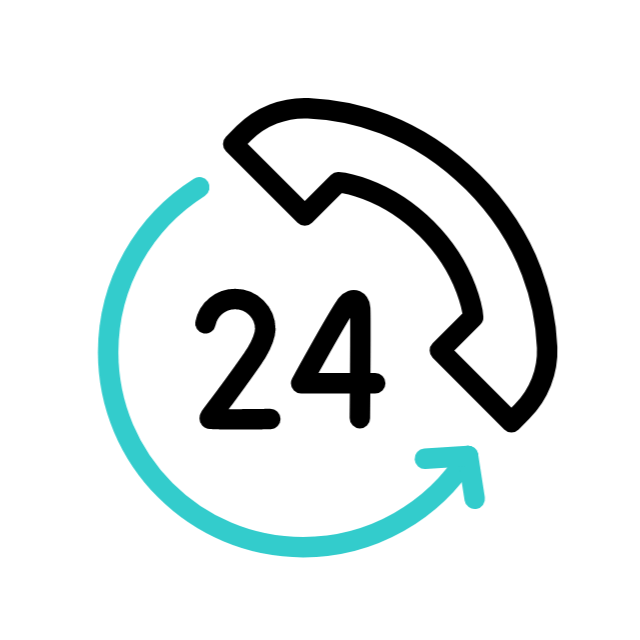Germany is now one of the best places for skilled workers to go if they want to work in another country. People know that the country has a strong economy, a high quality of life, and a work culture that is open to new ideas. It still welcomes talent from other countries. The best way for people who want to work in Germany but don't have a job offer yet to get there is to get a Germany job seeker visa.
With this visa, qualified people can go to Germany, look for jobs in person, go to interviews, and meet people who might hire them. It closes the gap between desire and opportunity, giving you a real chance to start a successful career in Europe's economic powerhouse.
What kind of visa do people need to work in Germany?
The Germany job seeker visa is a long-term residence permit that lets skilled workers from outside the EU stay in Germany for up to six months to look for work. With a tourist visa, you can't look for jobs or go to interviews in the country.
It is meant to make the German job market stronger by bringing in skilled workers from all over the world.
Why do you need a Germany job seeker visa?
Getting a Germany job seeker visa has a lot of benefits, such as:
You can get to jobs in Germany right away.
You can legally stay in Germany while you look for work.
You don't have to have a job offer when you apply.
Jobs in engineering, IT, healthcare, and other areas
If you get a job offer, you can get a work visa or an EU Blue Card.
Germany needs more skilled workers in many areas, so there is a better chance that qualified applicants will get jobs.
What you need to get a Germany job seeker visa
To get a Germany job seeker visa, you need to meet these requirements:
Have a degree from a well-known university and have worked for at least five years.
Show proof of money sources
Have health and travel insurance that is still valid.
You should be able to speak English or German well (B1 or higher is better).
You can use the Anabin database or the ZAB (Central Office for Foreign Education) to find out if a degree from another country is the same as one from Germany.
Things You Need
If your application is good, it is more likely to be approved. To get a Germany job seeker visa, you need to have these important papers:
A passport that is still good for at least a year
Proof that a degree certificate is the same as another one
Updated CV and cover letter
Proof of where you will stay in Germany
Proof of money, like a blocked account
Six months of health insurance coverage
A letter of motivation that talks about your career goals
The consulate or embassy that is processing the application will need each document to be translated into either English or German.
How to Get Germany job seeker visa
It's important to start the process of getting a Germany job seeker visa well before you plan to travel because there are a lot of steps involved. Here are the main steps in order:
Looking into and judging qualifications
Before you apply, make sure that your degree is valid in Germany. You can either get a certificate of equivalence from the ZAB or use the Anabin database.
Get the Right Papers
Make sure to carefully fill out all the forms you need. Your application could be delayed or denied if you don't have all the paperwork.
Set up a meeting
To set up a visa appointment, visit the official website of the German embassy or consulate in your country. It's best to make a reservation early because spaces can fill up fast.
Go to the interview for the visa.
During the interview, they will ask you about your education, career goals, and why you chose the Germany job seeker visa path.
Wait for the Visa to be Approved
After the interview, the visa application will be looked at. If you are successful, you will get a sticker on your passport that says "Visa."
Time and money needed to get a visa
It's important to know how much time and money you'll need to spend before you apply for the Germany job seeker visa.
A visa costs about €75.
Processing time: Usually between 4 and 12 weeks
The applicant's home country and the embassy's rules may affect the fees. It's smart to have some extra money on hand in case something goes wrong.
Getting a job in Germany with a job seeker visa
When you get to Germany, the real journey begins. With the Germany job seeker visa, you can stay for six months just to look for work. This is a one-time chance that can't be extended, so make the most of it.
Here are some good ways to find work:
People in Germany like job portals. LinkedIn, StepStone, Indeed, and XING are some of the most popular ones.
Events for networking: Job fairs, tech meetups, and professional seminars are all good places to go if you want to get hired.
Getting in touch with recruiters: Many staffing agencies work in fields like IT, healthcare, and engineering.
Sending applications directly to companies: German businesses like candidates who take the initiative to apply directly.
Job seekers should make sure their applications follow the German style, which includes a CV (Lebenslauf), a cover letter (Motivationsschreiben), and any relevant certificates.
How to Increase Your Chances of Success
You need to plan if you want to get the most out of the Germany job seeker visa. Here are some tried-and-true ways to boost your chances of getting hired:
Learn German: Even though a lot of companies use English, knowing German will make it much easier for you to find a job.
Connect with professionals: Joining sites like LinkedIn and going to events in your area will help you get noticed.
Keep going and be consistent. Make a plan for each day that includes applying for jobs, following up, and getting better at what you do.
Choose the Right Industry: Search for jobs in fields that hire a lot of people from other countries, like IT, engineering, nursing, and research.
Make Each Application Stand Out: Don't send out a generic resume. Each application should be specific to the job and the company.
If you have a clear plan and are determined, the Germany job seeker visa can help you get a good job.
What Happens After You Get a Job in Germany?
If you find a job during the 6-month visa period, the next step is to apply for a work visa or EU Blue Card. You can do this in Germany without leaving the country.
There are more long-term benefits once you get a job and settle down:
Permanent Residency: After working for a few years, you can apply for PR.
Family Reunification: After getting a work visa, spouses and children can join the visa holder.
To become a citizen in Germany, you have to meet certain language, residency, and legal requirements.
The Germany job seeker visa is just the first step on a longer journey to a happy and stable life in Germany.
Frequently Asked Questions (FAQs)
1. Can the Germany job seeker visa be extended?
No, it can't be made longer. If the person doesn't get a job, they have to leave Germany and reapply after six months.
2. Can the applicant's family members come with them?
No, you can't bring dependents with you when you go to Germany on a job seeker visa. But dependents can apply to join after getting a work visa.
3. Do you have to speak German to apply?
You don't have to speak German, but it makes it a lot easier to find work and fit in with the culture.
4. Can you work as a freelancer or part-time while you have a job seeker visa?
No, you can't work while you're looking for a job with a Germany job seeker visa.
5. What do you do once you get a job offer?
Most of the time, once the applicant gets a job offer, they can change their visa into a work permit or EU Blue Card without having to leave Germany.
6. Is there an age limit for applying?
There is no set age limit, but applicants must show that they have the right skills and recent work experience.
7. What kinds of jobs are in high demand in Germany?
Germany is currently lacking workers in IT, engineering, healthcare, skilled trades, and research and development.
8. Is it possible to speed up the processing of visas?
The amount of time it takes to process depends on where you are and how busy the embassy is. There isn't an official fast service, but getting your applications in early and completely can help things go more quickly.
Conclusion
The Germany job seeker visa is a great way for anyone who wants to get a job or move up in their career in one of Europe's strongest economies. It removes the first barrier of needing a job offer, which allows skilled people to look into real opportunities on the ground. If you plan carefully, keep good records, and are determined, this visa can help you get a job, live in Germany, and even become a citizen. For many people all over the world, this is the beginning of a journey that will change their lives.






